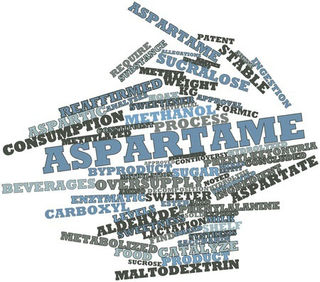Depression
Diet Soft Drinks Linked to Depression
New research examines link between sweetened drinks and depression.
Posted June 24, 2016
It’s tempting to think that diet drinks sweetened with sugar substitutes are good for you. They taste sweet, are refreshing, and, like water, many don’t have calories.
However, these drinks aren’t water, which is found naturally all around us; instead, they’re made from chemicals borne in the lab from the minds of scientists. For instance, aspartame—which in an attempt to boost sales was replaced by sucralose (Splenda) in Diet Pepsi products—is composed of 2 amino acids: phenylalanine and aspartic acid.
Although they’re likely safe in a more general sense, artificial sweeteners have been linked to weight gain. Furthermore, new research suggests that frequent consumption of sweetened drinks—in particular diet drinks sweetened with sugar substitutes—are linked to depression in older American adults.
In a 2014 article titled “Sweetened Beverages, Coffee, and Tea and Depression Risk among Older US Adults,” researchers detail how they analyzed data from the NIH-AARP Diet and Health study to examine the relationship between depression and sweetened drinks, such as fruit drinks, soft drinks (diet or regular), coffee, iced tea and tea. Examples of fruit drinks included Hi-C, Kool-Aid and lemonade.

This huge prospective cohort, which was established by the National Cancer Institute between 1995 and 1996 to elucidate the causes of cancer and other chronic diseases, comprises 566,398 AARP members (aged between 50 and 71 years). More specifically in this study, the researchers examined the link between sweetened beverages, coffee, or tea and depression among 263,923 participants thus identifying 11,311 cases of depression among this cohort.
Here is what the researchers found:
- In the aggregate, frequent consumption of soft drinks and fruit drinks among older Americans was associated with an increased risk of depression.
- Regarding soft drinks, this increased risk was higher for elderly people who drank more than one can a day.
- Coffee consumption without added sweeteners was associated with a weakly lower risk of depression in people who drank 4 or more cups a day.
- Iced tea and hot tea in which artificial sweeteners weren’t added were not associated with depression.
- Further analysis showed that the link between depression and consumption of fruit drinks or iced teas was primarily evident with those drinks sweetened with sugar substitutes.
- Addition or artificial sweeteners to coffee or tea was associated with a higher risk of depression; whereas, adding honey or sugar to coffee or tea wasn’t associated with a higher risk of depression.
- Consumption of both caffeinated and decaffeinated coffee that was unsweetened was associated with a slightly lower depression risk.
- Both caffeinated and decaffeinated soft drinks were associated with increased risk of depression.
- Curiously, consumption of iced tea and hot tea was associated with depression in those participants who primarily drank decaffeinated iterations.
Of note, caffeine is a brain stimulant, and some studies have shown that consumption of caffeine may be beneficial for brain health. Furthermore, coffee and tea not only contain caffeine but also other antioxidants and phytochemicals that may protect against depression and promote brain health.
One possible reason explaining the association between artificial sweeteners and depression risk may have to do with the effect of these sweeteners on neurotransmitters, such as serotonin and dopamine; however, supporting evidence is mixed.
With respect to this study, the elephant in the room is reverse causality. In other words, people with depression may crave sweetened drinks. In an attempt to control for this alternative explanation, the researchers “only included depression diagnoses occurring at least four years after exposure assessment which further reduced the potential influence of reverse causation on our analyses.”
Finally, although confounding variables were controlled for, the consumption of sweet drinks might still be associated with other things like poor health, diabetes and obesity that may in turn be associated with depression.


